As the US presidential election looms, David Holdridge argues that Washington must make some fundamental changes if it is to be relevant to the new global dynamic, particularly in the Middle East.
For the most part, those of us who were on the front lines of American foreign policy were excluded from the committee hearings and round tables where policy was drawn up. With the advent of new media, that is slowly changing. Soldiers and humanitarian workers are getting a voice. They are not sequestered in policy conclaves nor are they the dog or pony for those quick views usually afforded to the architects of the policy. Rather, they are the ones who have far too often lived the disappointment of the American policy as the presumed outcomes foreordained by political hierarchs, failed to persuade the hearts and minds they presumed to influence. Such was Vietnam; such was Iraq; and such now is, I fear, Afghanistan.
The Policy Context
Sixty-seven years after the end of World War 2, America is at an historical junction. It no longer has the internal resources nor the lion's share of global GDP which it enjoyed for most of that time. The era of "controlling the narrative" is evolving to a possible era of "influencing the narrative".
The US remains the world's largest economy, the pre-eminent culture and the unchallenged military force that will surely support its ability to be persuasive, if not controlling. To maintain its primary role as "influencer", it will need to assure three components of that leadership: the maintenance of an unchallenged strategic military force (parallel to a significant modernization and reduction of its conventional land forces), the transfer of its soft-power from the government to the American private sector (both profit and non-profit), and the provision of public sector incentives for the enhancement of "America as incubator'.
Space exploration, renewable energy, information and communication technologies, genetics and an array of other efforts will define global dynamics over the 21st century. It will be more transformative than the industrial revolution and this time, has its genesis in the United States. Coupled with undiluted citizen overview and undiminished citizen rights, there is reason to believe that such technologies can have a net beneficial impact on human kind.
A Renaissance in the Arab World
Now with the aforementioned over-arch, but focused on the Middle East, the White House should heed the following framework for deliberation. Notably, for the Middle East, the issue is not about Islam per se. Not about ''freedom of expression versus the sanctity of beliefs". Rather it is about two principal and entwined issues.
The first concerns renaissance in the Arab world. For the great majority of Arabs, renaissance is far less about a return to absolute piety than it is about making an important contribution to global intellectual capital, as well as becoming a source for goods and services seen as valuable among global consumers.
The world, under Western influence, has moved too far to now lay prostrate before the "mysteries". In the 300 years since Newton, mankind now assumes to know more and more and to use that knowledge for an improvement (however defined) in his/her earthly condition. Few will argue that the basis for those improvements is not a culture of inquiry and the free debate and exchange of ideas. The incubation of transformative ideas relies upon a surrounding culture which favors this. Such a culture needs to be comprehensive. It cannot parse that freedom to only prevail partially.
In short, there will be no modernism, no invention, and no rising middle class in the Arab world without its body politic shedding an insistence on unchanging, universally applied and irrefutable verities. "Knowing" relies on initial doubt and on recurring doubt.
In the Shadow of Western Thought
The second issue concerns pride and self confidence — a sense of self worth. The plain truth is that for over a hundred years, the Arab and Muslim world's contribution to global thinking and products has been minuscule when compared to the rest of the world, and even with their own prior history known as the Islamic Golden Age. The Arab world's representatives are rarely on any of the world's podiums: not sport, not the arts and not science. Those wars it has engaged during that same time frame have all been lost— most often in less than a month. In most instances their performance has been considered ludicrous if it were not for the tragic loss of life.
These Arab countries have been victims, lived in the shadow of western thought, occupation, and business. No civilization can rise without a commensurate sense of self worth, and the attainment of that by Arabs is dependent on ''winning'', winning anything, even if only occasionally. Their youth need to have a reference point of something won.
Right now there are only two such reference points for confronting this dilemma. The sweep and grandeur of the Islamic caliphates up until the siege of Vienna in 1683, and the other was and is the jihad against the West and the attack on its principal symbols on 9/11. To that one might add the Arab Uprisings in 2011, and while the impact of the events is yet to be determined, it does hold promise of both modernization and the germination of self-worth.
The Arab nations will be engaged with America as long as the world longs for inexpensive hydrocarbons and as long as the presence of Israel in their midst is unresolved. Were it not for that fact, the West would leave the Arab world to its own devices as it sought relevancy or not. But Israel and the hydrocarbons do exist and so the West will stay involved.
What the US Should Encourage
With the above in mind, here is what the White House should encourage over the next four years and beyond.
First, it must invest or favor US investments in those Arab countries which show a proclivity to modernize. Again the Arab world needs successes desperately, and the fact that oil sheikhdoms are lavished in wealth does not qualify at all for the millions of Arab youth from Casablanca to Damascus. For the moment, we may have a handful of Arab countries apt for modernization. The United States should open all investment doors possible for these countries.
Notably, the Maghreb has been the center of power for the Arab world before and may again. The US should lower its official voice as concerns the values portion of its mantra about ''projecting values and interests" and work the engines of business development. The middle class and its abiding materialism is the antidote to exclusionary and prescriptive views of the divine. And lest we not forget, doing business in the souq (market) is as old as the Arab narrative.
Second, the White House must use the new technologies to promote thousands of connections between American and Western civil society, and their emerging likenesses in the Arab world. Transformation in the Arab world will not come as a result of red, white and blue branded dictums from Washington or its contractors. It will come from connecting directly in peer to peer relations between the thousands of chambers, granges, rights groups, Diaspora, and centers for learning in the West with their counterparts in the Middle East, through direct dialogue between them as partners in the same cause, not as donor-recipients in an asymmetrical relation. America has a great underutilized asset: the vigor and history of its own civil society which needs to be engaged in global transformation. Barack Obama's June 2009 exhortation as the Al-Azhar University in Cairo, needs new life breathed into it.
An Honest Broker?
Finally, there are the seemingly "intractables". On Palestine, the US must do more to earn a role as an honest broker if it is to be taken seriously by the Arab world. No doubt, without a dramatic shift in US domestic politics, this would entail a significant level of courage by an American commander-in-chief, not encountered to date. A second term for Obama may allow some movement here.
Concerning the Persian Gulf, energy independence for America in the next decade will not solve the issue. The world's economic well-being needs those sea lanes open for oil trade. Despite the embarrassment the Arab oil monarchs cause us, and our Bill of Rights, this will be an enduring duplicity which can only be mitigated over time.
There is also Syria where its original democratic uprising now has as its two largest Gulf Arab investors, those which are most notably undemocratic. Moreover, as Egypt and Turkey's designs are currently unclear and together with the absence of a defined opposition to Bashar al-Assad, along with how an extended turmoil affects Hezbollah and Israel's security, we have the definition of a conundrum. Still, as the refugee flows intensify and the number of casualties multiply, there will be mounting pressure from Western media to do something beyond speeches and providing non-lethal assistance. France and Turkey are already chomping at the bit for "no-fly zones" which is a very slippery slope for an America very wary of further foreign entanglements.
Willing to Take Risks
In the end, the US can address the first two issues forcefully to its advantage and to the soothing of relations between Islamic and secular nations. These are eminently achievable. As concerns ''the intractables", there is no easy answer and I would be wary of any proposition.
What we can do is take more risks than we have to influence a sustainable and less violent future. In the end, Israel must concur with a just two state solution. At some point in time, Americans will no longer be willing to have the Israeli tail wag the American dog. Equally, the demographics over time in the Holy Land will eventually insist on either an accommodation by Israel of two states or any semblance of the hopes behind the creation of Israel will dissolve.
The Persian Gulf and its inviolability will in the next thirty years diminish as a trigger for global economic demise. Syria may presage a re-alignment of Sykes-Picot partition; de facto as in Lebanon, or recognized land as in the Kurdish regional government in Iraq. But a convulsion nevertheless. The US has some influence with Saudi Arabia, and Turkey and should be able to calibrate outcomes. Israel will be more difficult. Its current prime minister claims an existential fight with Iran is on its hands. I am less sure of that and agree with other distinguished Israelis, Dan Meridor and Ehud Barak, that Iran will "probably" act rationally and not according to its often inflammatory rhetoric. One thing is certain, a large scale preemptive air and missile strike against Iran would be ruinous for America's relations with the Middle East and throw the global economy into chaos.
The views expressed in this article are the author's own and do not necessarily reflect Fair Observer’s editorial policy.
Support Fair Observer
We rely on your support for our independence, diversity and quality.
For more than 10 years, Fair Observer has been free, fair and independent. No billionaire owns us, no advertisers control us. We are a reader-supported nonprofit. Unlike many other publications, we keep our content free for readers regardless of where they live or whether they can afford to pay. We have no paywalls and no ads.
In the post-truth era of fake news, echo chambers and filter bubbles, we publish a plurality of perspectives from around the world. Anyone can publish with us, but everyone goes through a rigorous editorial process. So, you get fact-checked, well-reasoned content instead of noise.
We publish 2,500+ voices from 90+ countries. We also conduct education and training programs
on subjects ranging from digital media and journalism to writing and critical thinking. This
doesn’t come cheap. Servers, editors, trainers and web developers cost
money.
Please consider supporting us on a regular basis as a recurring donor or a
sustaining member.
Will you support FO’s journalism?
We rely on your support for our independence, diversity and quality.


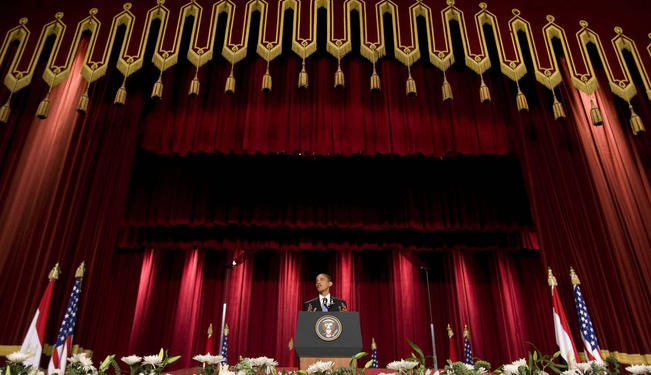
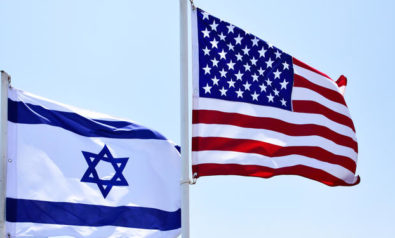


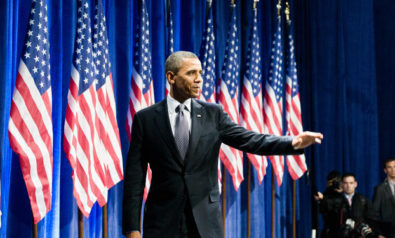
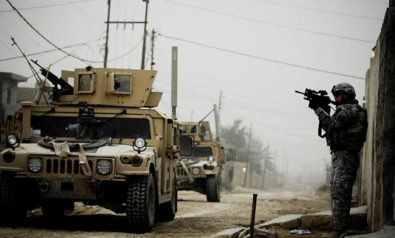

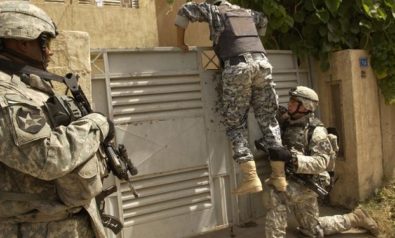

Comment